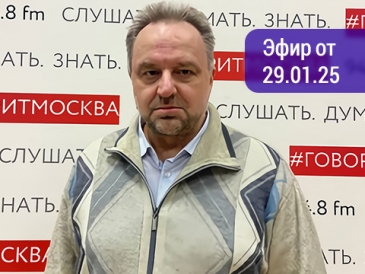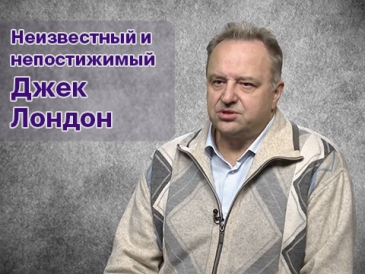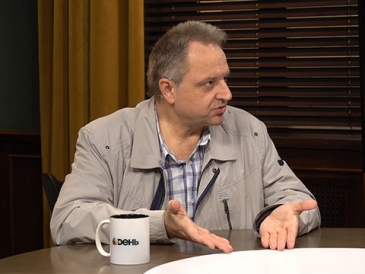В 2018 году 16–17 февраля 2018 года в Леонтьевском центре в Санкт-Петербурге прошла XXVII ежегодная международная конференция из цикла «Леонтьевские чтения» «Экономическая теория: триумф иди кризис?». Одним из докладчиков XXVII конференции был Евгений Балацкий, директор Центра макроэкономических исследований Финансового университета при Правительстве Российской Федерации, главный научный сотрудник Центрального экономико-математического института (ЦЭМИ) РАН. Предлагаем запись его доклада на тему «Политология как интегратор социальных наук».
Неэргодическая экономика
Авторский аналитический Интернет-журнал
Изучение широкого спектра проблем экономики
|
Видеоматериалы
|
Политология как интегратор социальных наук
2606
18.01.2019
Добавить комментарий:
|
|
|
| Ваше имя: | |
Публикации
Развитие России во многом определяется решением демографического вызова, игнорирование которого может создать в долгосрочной перспективе экзистенциальную угрозу существованию страны. Именно поэтому демографический вопрос определен как стратегический приоритет России на ближайшие десятилетия. К числу наиболее амбициозных перспектив увеличения численности населения России относится заявление лидера ЛДПР Л. Слуцкого, обозначившего необходимость двукратного его увеличения в ближайшие 50 лет. Построенная в работе модель демографического роста в России позволила определить факторы, влияющие на рождаемость в стране, и рассчитать их целевые значения, необходимые для достижения цели по двукратному увеличению численности. Одним из факторов, влияющих на повышение рождаемости, является коэффициент соотношения браков и разводов, значение которого за последнее десятилетие сократилось почти в 1,5 раза. Демографическая экспансия требует почти двукратного его наращивания, что подразумевает серьезную работу по укреплению семьи и формированию образа многодетной семьи как нормы жизни общества. В настоящее время Правительством РФ активно проводится работа в направлении материальных и социальных аспектов демографической проблемы, что позволяет в краткосрочном моменте решать многие вопросы демографического вызова. Однако для формирования устойчивого роста населения в стране необходима работа с сознанием населения, ориентированная на долгосрочный горизонт планирования. В качестве мер, направленных на укрепление семьи с целью снижения количества разводов и формирования семейных ценностей как залога будущего России, в статье рассмотрены предложения по созданию и развитию Центров психологической поддержки семьи, популяризации образа семьи и многодетности и формированию семейноцентричного государства.
12.07.2025
В статье предлагается концептуальная модель долгосрочного развития России, адекватная новым вызовам и проблемам. Методологической основой исследования является процедура системной сборки отдельных элементов долгосрочной политики в единое непротиворечивое целое, обладающее синергетическим свойством. В основу модели развития заложено три фундаментальных сквозных принципа, которые пронизывают все звенья экономической системы: эффект масштаба; принцип согласованности; расширенную модель успеха страны. Сквозные принципы не только упорядочивают стратегию развития государства, но и обозначают его конкурентные преимущества и способы достижения поставленных целей. Структура концептуальной модели развития России включает теоретический блок, состоящий из государственной идеологии, и функциональный блок, включающий такие разделы, как демография, экономика и технологии. В свою очередь блок идеологии предполагает новую государственную идеологию и определение экономического строя страны. Блок демографии предусматривает три ключевых элемента: специальную демографическую операцию для обеспечения переходного периода к демографической экспансии; демографическую экспансию на основе комплексных реформ институтов, экономики и культуры; миграционный контроль для сохранения национальной идентичности. Блок экономики включает следующие разделы: обеспечение антихрупкости экономики; многоуровневую систему селективного управления экономики; внедрение модели народного капитализма. Блок технологий подразумевает разделы: технологический рывок на существующей производственной базе; монетарные стимулы для новых производств; масштабную технологическую диффузию. Обосновывается тезис, что реализация предложенной стратегии развития позволит решить многие проблемы, в том числе те, которые не удавалось решить на протяжении предыдущего периода существования страны.
12.07.2025
В статье проведён всесторонний анализ экономической политики администрации Дональда Трампа, обозначенной термином «трампономика». Основное внимание уделено ключевым аспектам её реализации в условиях глобальных экономических трансформаций. Рассматривается влияние протекционистской направленности политики на международные торговые отношения, включая последствия введения тарифных ограничений и пересмотра торговых соглашений. Авторы выявляют закономерности в действиях администрации Трампа, которые способствовали как росту отдельных высокотехнологичных отраслей, так и углублению структурных дисбалансов в американской экономике. Особое место в работе занимает анализ неомеркантилистских подходов, характерных для внешнеэкономического курса администрации, и их долгосрочные последствия для мировой торговли. В статье также рассматриваются институциональные преобразования, направленные на усиление национальной безопасности США и перераспределение ресурсов в пользу внутренних рынков. Авторы сопоставляют реализованные подходы с традиционными неолиберальными стратегиями, выделяя ключевые различия в их долгосрочных последствиях для экономического роста. Представлен сравнительный анализ трампономики и альтернативных экономических доктрин, таких как байденомика, что позволяет оценить влияние политико–экономических факторов на формирование национальной стратегии. Полученные результаты обобщают опыт США в условиях глобальных вызовов и могут быть полезны для стран, стремящихся адаптировать свои экономические модели. Статья предлагает перспективные направления для дальнейших исследований, включая изучение новых форм протекционизма и их роль в преодолении структурных дисбалансов мировой экономики. Научный интерес представляет рассмотрение взаимосвязи между политическими целями и экономической стратегией США в период 2016–2020 годов, а также её влияния на формирование новой глобальной парадигмы. Полученные результаты могут быть использованы для оценки аналогичных экономических курсов в других странах.
08.07.2025
Видео
События
Аналитики Финансового университета обнародовали Рейтинг университетов мирового класса – 2021 / 19 мая
Аналитики Финансового университета представили Рейтинг ведущих экономических журналов России – 2021 / 19 мая
Сотрудники Финансового университета на конференции «Журнала Новой экономической ассоциации» представили новый Рейтинг российских экономических журналов / 13 мая








